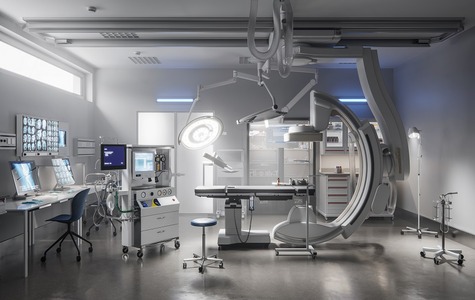- Medical Devices
- Wednesday, 15 Jul 2020
GM Receives N95 Certification Under New NIOSH Public Health Emergency Process
General Motors has received N95 certification for the filtering facepiece respirators made at the company's Warren, Michigan facility. The approval was completed through the new public-health emergency process implemented by the National Institute for Occupational Safety and Health, part of the Centers for Disease Control and Prevention.
In response to the urgent need to increase the inventory of NIOSH-approved respirators during the COVID-19 pandemic, the staff at NIOSH's National Personal Protective Technology Laboratory has worked tirelessly to quickly evaluate new domestic respirator applications for approval. These efforts are helping to increase the supply of available certified filtering facepiece respirators while ensuring that new respirators meet the protective standards workers need and expect from NIOSH-approved respirators.
As defined by NIOSH, the term N95 refers to the filter class, not the respirator. However, many filtering facepiece respirators have an N95 class filter and many people refer to them as N95 respirators. A filtering facepiece respirator that filters out at least 95 percent of airborne particles during "worst case" testing using a "most-penetrating" sized particle is given a 95 rating.
Achieving an N95 rating required an entirely new manufacturing process with four separate stations to help create a tight seal around the user's face:
- Station 1: Four layers of fabric are sandwiched together, tack-welded in place and then cut into rectangular "blanks"
- Station 2: Blanks are loaded into a template that welds the outer perimeter as well as the pocket for the wire nose piece
- Station 3: The wire nose piece is inserted, the blank is folded horizontally and a sonic weld in the shape of a hockey stick is installed from the nose to chin
- Station 4: The excess material is trimmed
To expedite the launch of the N95 line, GM repurposed sonic welders from the Brownstown Battery Assembly plant. These sonic welders were previously used to form sub-assemblies in the Chevrolet Volt's battery packs. For the N95 line, the equipment was updated with new templates to create the weld patterns needed for respirators.
After being trimmed to shape, the N95 masks follow the existing assembly process at Warren: ear bands are manually welded in place; completed masks are subject to a quality check; and then masks are cleaned, bagged and prepared for shipment.
As with face masks, GM will donate some of the N95 respirators to frontline workers. To date, the Warren facility has delivered more than 4 million face masks and 230,000 face shields to frontline workers.
Related Industry Updates
Prepacked Chromatography Columns Market: Top Key Market Trends 2021-2027
May 03, 2021
Emergent Trends of Asia Pacific Antibiotics Market during forecast period 2019-2027
Aug 11, 2020
Forthcoming Skin Aesthetic Devices Market (2021-2027) with Top Leading Vendors: Sciton, inc. Fotona Venus Concept Allergan plc. Cynosure Alma Lasers
Mar 10, 2021
China Transmucosal Drug Delivery Systems Market Forecast to 2027 - COVID-19 Impact and Global Analysis By Route of Administration (Oral,Vaginal,Nasal,Urethral/Rectal); by End User (Hospitals,Clinical Laboratories,Other End Users) and Geography
Apr 09, 2021
Canes & Crutches Market Trends, Analysis and Forecast 2027|Ottobock, mikirad, Cardinal Health, Medline Industries
Nov 26, 2020
Digital Transformation in Healthcare Market 2021 | Know the Latest COVID19 Impact Analysis and Strategies of Key Players Accenture PLC, Adobe Systems, CA Technologies, Cognizant
Apr 16, 2021
Medical Adhesives and Sealants Market Players Eye Lucrative Opportunities in Acrylic Segment to Improve Sales
Apr 05, 2021
